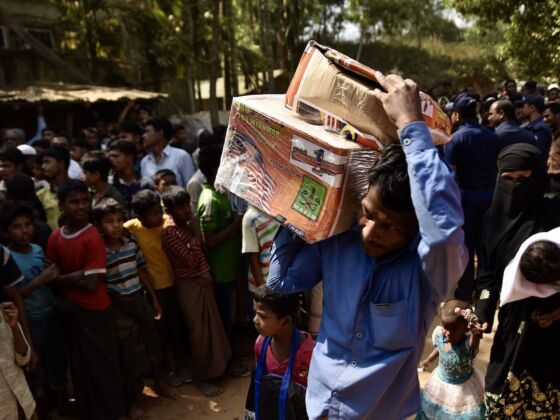I hugged my friend as I rode on the back of his motorcycle at 1AM in the morning. The panic attack I was having made it hard to breathe. The 7.9 magnitude earthquake that occurred a month earlier was finally taking its toll on me, and we were rushing to the nearest hospital in Kathmandu.
When we do humanitarian work we focus on the person who doesn’t have health care access or the girl who can’t afford to go to school. We focus on the family that still uses kerosene for light or the mother who needs capital to grow her micro-enterprise. It makes sense. But we are forgetting about someone.
